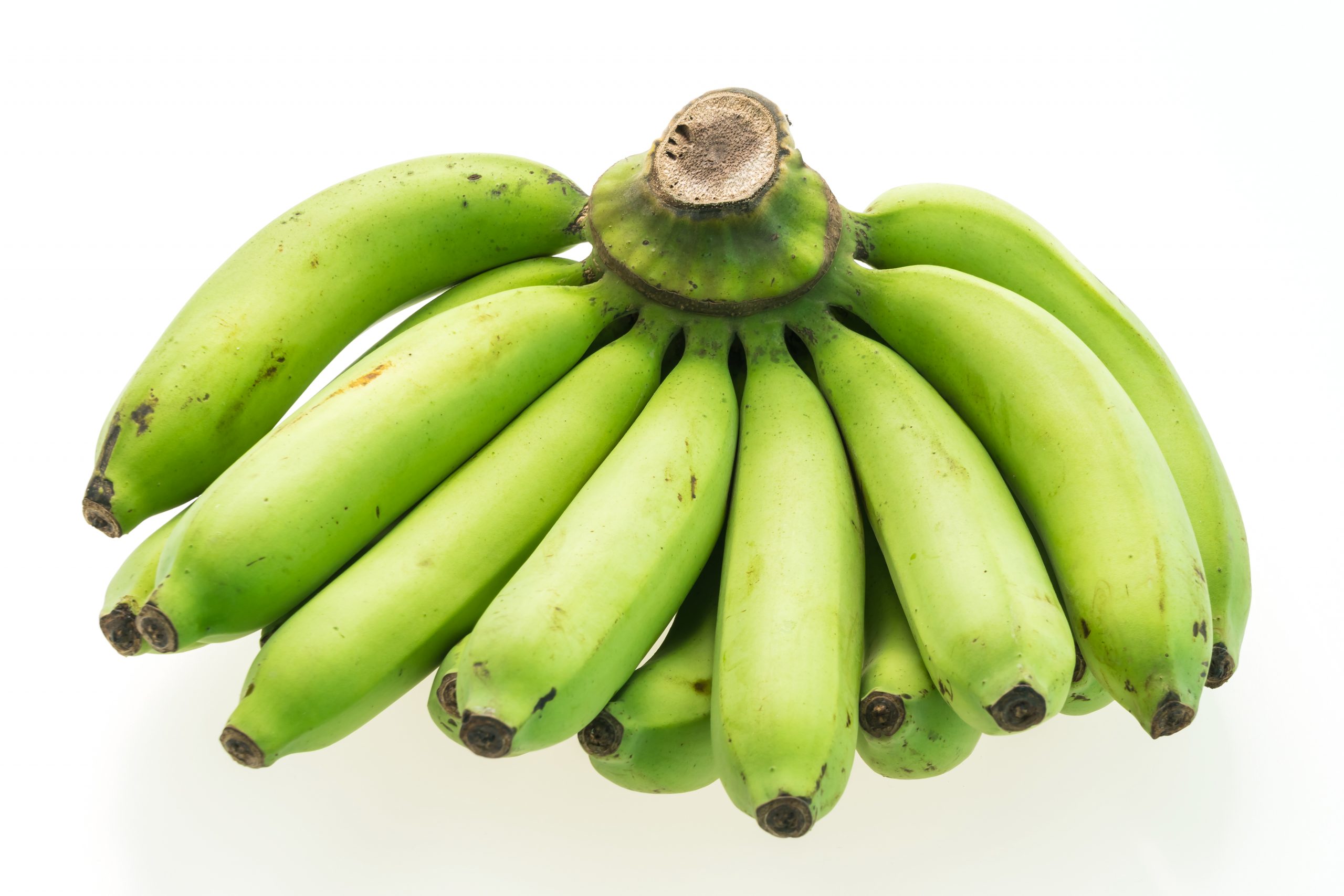Is Raw Banana Good for Diabetes?

Meet the raw banana- Raw bananas are most commonly found in many Indian homes and are popular for their earthy taste and versatility. Unlike ripe bananas, raw ones are firm, less sweet and rich in resistant starch. But beyond taste, here is the thought: Is raw banana good for diabetes? Let us find out.
Raw bananas are all-rounders in cooking because they are used in many dishes, such as curries, kebabs, cutlets, chips, and porridge. They are usually boiled, steamed, or fried before eating because their starchy texture makes them hard when raw. In South Indian, Maharashtrian, and Jain cuisines, raw bananas are usually used as a substitute for potatoes, adding a nutritious, fibre-rich twist to traditional recipes.
What is the Nutritional Profile of Raw Banana?
The Nutritional breakdown of Raw Banana(Raw) per 100 g, is approximately based on Fitterfly’s proprietary tool Ntuitive( data based on IFCT 2017)*
| Nutrient | Amount |
| Calories | 105.16 k cal |
| Carbohydrates | 23.63 g |
| Proteins | 1.23 g |
| Fat | 0.33 g |
| Fibre | 1.94 g |
| Phosphorus | 24.32 mg |
| Calcium | 5.07mg |
Glycemic Index of Bananas: Why Green is Better for People with Diabetes
Bananas are a popular fruit enjoyed by many, and they are available almost everywhere throughout the year, but their effect on blood sugar depends on how ripe they are. According to the International Glycemic Index Database,
Ripe banana glycemic index – 51
Slightly under-ripe/ green banana – 42
A study shows how bananas at different ripeness levels affect blood sugar in people with diabetes. It found that under-ripe (green) bananas raised blood sugar much less than over-ripe (yellow) bananas. To make it simple to understand, the greener the banana, the slower it raises blood sugar.
Raw Bananas and Diabetes: You Should Know
Raw bananas can help manage diabetes because they contain a lot of resistant starch(RS).
What is Resistant Starch?
Resistant starch is a type of starch which does not digest easily in the small intestine. Instead, it acts like fiber in the gut, feeding good bacteria and producing helpful compounds.
A study of people with pre-diabetes and type 2 diabetes showed that eating green bananas for 24 weeks lowered their fasting blood sugar and reduced HbA1c (a measure of long-term blood sugar control). This can improve insulin sensitivity and help stabilise blood sugar levels.
Is Raw Banana Good for Diabetes?
Despite having a low glycemic index, raw bananas are high in carbohydrates. So, people with diabetes must eat only after consulting their nutritionist and diabetologists.
The ADA recommends that people with diabetes incorporate low-GI fruits into their diet, provided they consume a well-balanced diet and the fruit in small quantities.
That is where Fitterfly comes in, helping people with diabetes make smart food choices without confusion or guesswork. Through personalised nutrition plans, expert guidance, and easy-to-follow meal tracking, fitterfly ensures that even foods like raw bananas can be safely included and in the right amounts. With continuous glucose monitoring and professional support, you can manage blood sugar levels effectively while still enjoying a balanced, satisfying meal.
What are the Other Health Benefits of Eating Raw Bananas?
Gut Health: Resistant starch (RS) is present in raw bananas, which is like food for the good bacteria in your gut. These friendly bacteria eat the RS and grow stronger, helping keep your digestive system healthy. A healthy gut can improve digestion.
Feeling of Fullness and Appetite Control: Eating raw bananas, which are rich in resistant starch, can promote feelings of fullness and help in appetite control.
| 📖Also Read: Fitterfly- Is Banana Good for Weight Loss? |
What are the Diabetes-Friendly Recipes for Raw Bananas?
Raw Banana & Chickpea Flour Pancakes
Ingredients:
1 raw banana (boiled and mashed)
2 tbsp chickpea flour (besan)
1 egg or 2 tbsp curd ( for protein)
Spices- cumin, turmeric, salt and pepper
Method:
Mash the boiled raw banana, then mix it with chickpea flour, egg or curd, and spices to form a batter. Cook in a non-stick pan like a pancake.
Raw Banana & Moong Dal Curry
Ingredients:
1-2 raw bananas, peeled and chopped
½ cup of split yellow moong dal (for protein)
Spices: turmeric, cumin, coriander and salt
1 tsp olive oil or ghee
Method:
First, heat oil or ghee in a pan, add the spices, and sauté. Add the cooked dal and banana pieces, mix well and simmer for a few minutes before serving.
Tips:
|
Fitter Take
Raw bananas are versatile, affordable, and easily available all over the country. They are loaded with nutrients like vitamins, minerals, and fibre, and also have a low GI.
However, due to their high carbohydrate content, it is best to consult your nutritionist before including them in your diet. It is also essential to understand how raw bananas affect your blood sugar levels.
We understand how important your diet is when you have prediabetes and diabetes. That is why Fitterfly offers a comprehensive, technology-driven and science-based Diabetes Care Program.
Need more information about our diabetes program? Speak to us today! Or call us on 08068507599 to know more.
This blog provides general information for educational and informational purposes only and shouldn't be seen as professional advice.
Frequently Asked Questions
Is a raw banana good for diabetes?
Yes, raw green bananas can be beneficial for people with diabetes when eaten in moderation. They contain resistant starch, which helps control blood sugar levels and improve insulin sensitivity. Always consult your nutritionist before adding them regularly to your diet.
Can a person with diabetes eat ripe bananas?
Ripe bananas have high sugar content and a higher glycemic index than raw bananas, meaning they can raise blood sugar more quickly. People with diabetes can still enjoy small portions occasionally, preferably paired with protein or healthy fat(like nuts or curd) to slow sugar absorption.
Which banana is good for diabetes?
Raw bananas are better for people with prediabetes and diabetes as they have a lower GI. The GI of bananas also varies slightly among the different varieties of fruit. Always consult your nutritionist to find out which bananas are best for you.





















